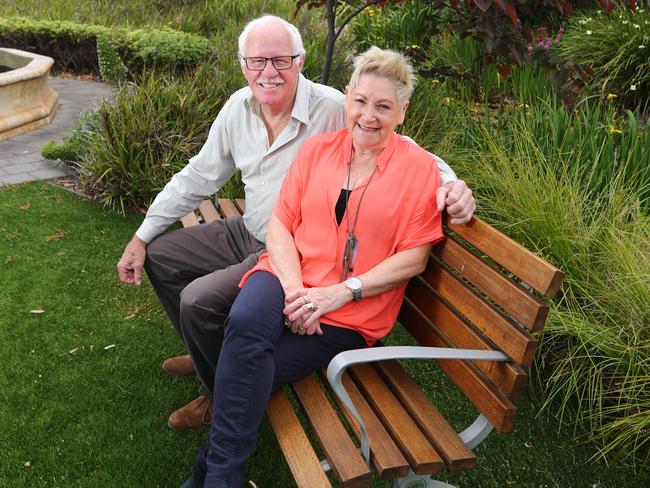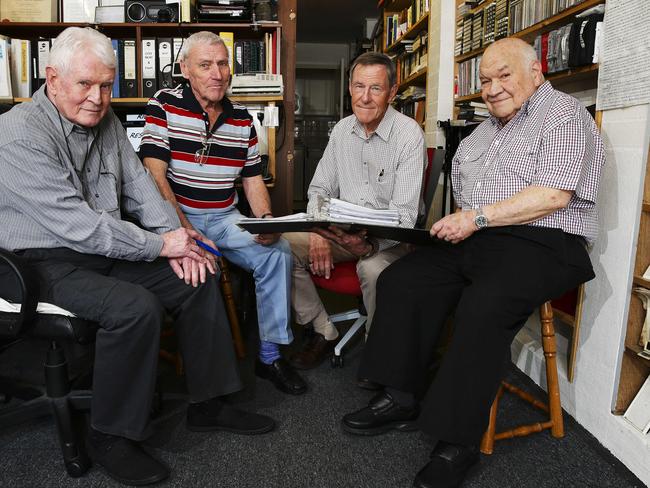Federal Government tells states to create uniform retirement village laws to protect seniors
STATES have been put on notice to change their laws to better protect retirement village residents and their families or face federal intervention.
Money
Don't miss out on the headlines from Money. Followed categories will be added to My News.
EXCLUSIVE
STATES have been put on notice to change their laws to better protect their retirement village residents and their families or face federal intervention.
Federal Consumer Affairs Minister Michael McCormack has given state counterparts until the first half of next year to create plans to overhaul legislation covering villages, with evidence lax and un-enforced laws were being manipulated by unscrupulous owners and operators.
Speaking to News Corp Australia yesterday as Kathryn Greiner wrapped up her inquiry into retirement homes in NSW and the Victorian government’s response to its own inquiry was tabled last month, Mr McCormack described as “very alarming” reports from across Australia about “rife” industry abuse.
He has chaired a meeting in Melbourne with state counterparts and has nominated four critical areas he wants addressed in six months through uniform state laws.
It’s the first time the federal government has proactively taken a hard line after a decade of inaction following a damning 2007 parliamentary inquiry and a 2011 Productivity Commission report, scathing about the lack of protections for those moving into retirement villages.
His four concerns were for fairer contract terms, structured exit fees, simplified contracts and consensus on dispute resolution.

“It is rife, people are being ripped off and families want to know their patriarchs and matriarchs going into retirement villages are going to be looked after, they are not going to be ripped off and are going to be able to enjoy their twilight years without the worry and stress of filling in a form that they didn’t know the ins and outs or whether they have to seek some form of redress through legal entities and we know that’s a slippery path,” he said.
He cited South Australia’s retirement laws, to come into effect January 2018, as a benchmark for uniform legislation for other states and suggested the Australian Competition Consumer Commission could have a greater role in policing the industry.
“It would be desirable that we have unified legislation across the place because quite frankly the borders have to come down, the states have to do their area of work and report back to me, tell me what they’ve done what steps they have put in, what measures they have put into effect,” Mr McCormack said.

“We’ve taken the lead, we might have to take a sterner approach,” he said declining to say what that was. “I don’t want to pre-empt, I’d like to think we can work in good faith and even though we come from different politics I think they’ve shown a willingness to approach the subject in the right way, in the right fashion for the right outcome.”
Council on the Ageing Australia chief executive Ian Yates said consistent legislation was essential, particularly for multistate operators who invariably have higher resident costs depending on complexity of contracts from 20-30 pages in SA to more than 100 in NSW. He wasn’t hopeful.
“I know when it was put on the agenda of (minister’s) state and territory colleagues they said ‘no’ in prompt terms to trying to develop consistent legislation,” Mr Yates said.
He suggested the Australian Securities and Investments Commission could have oversight since village contracts were less about real estate and more about complex financial transactions.
“There isn’t illegality in these things, operators just do what the legislation says they can do, problem is these are very complex financial models,” he said.

He said States could refer the powers to the Commonwealth like general consumer laws or create a model law and share it like in the energy market sector.
Retirement Village Residents Association president Tom Gait said a national ombudsman was one solution to deal with contract complexities and hidden fees and questioned whether it was practical to expect a complaining 80-year-old would be listened to by the ACCC which goes after whole industries.
‘CONTRACTS ARE QUITE CHALLENGING’
HELEN and Ralph McGuinness are among thousands of South Australians living in retirement villages who find the contracts, fees and other financial structures complex and confusing.
The Leabrook couple, aged in their mid-60s, moved into a retirement village seven years ago for health reasons, and say they “love the facilities and the social lifestyle”.
However, despite SA being seen as a success story compared with other states where industry abuse is rife, retirement village residents still have their struggles.
“We have to admit we found the contracts quite challenging,” Mrs McGuinness said.
“Maintenance fees are based on amenities and we also have a residents’ committee to keep all financials in line. But we have found a tremendous increase during the time we have been living in the village.”
A University of Adelaide report released this year found there were “clearly pockets of issues around rising maintenance fees and costs and lack of understanding and clarity with contracts and lease agreements that need to be addressed”.

New laws to start in SA on January 1 should help the 26,000 people who live in 532 retirement villages across the state.
Minister for Ageing Zoe Bettison said the new laws would improve transparency for residents through a standard disclosure statement showing fees and charges.
“It introduces penalties for operators that exploit residents,” she said.
“Increased consumer protection will in turn create increased confidence in the industry.”
SA Retirement Villages Residents Association president Bob Ainsworth said he hoped that regulators would publicly name and shame bad operators once the new laws started.
“Our main concerns in the retirement village industry are greater accountability and communicating clearly in relation to fees,” he said.
“Sadly there are a small number of operators whose definition of consultation is nothing more than confrontation.”
Retirement village residents pay loans worth hundreds of thousands of dollars to enter a village, plus monthly fees, deferred maintenance fees and other charges. When they eventually leave they are refunded a proportion of their initial payment.
“You don’t go into a retirement village to make money,” Mr Ainsworth said.
‘THEY CAN’T AFFORD TO LIVE HERE ANYMORE’
THERE is not much to discern Neil Smith’s double garage from those of dozens of the other 80 or more in The Landings on the fringes of the spectacular Ku-ring-gai Chase National Park.
Indeed most of the homes in this $150 million retirement village are picture-perfect, the same with their cream and grey gabled roofs and walls, picket fences and immaculately manicured lawns and gardens.
But behind the Smith roller shutter the space has been converted into a “war room” where the warriors of past battles are strategically leading the latest conflict with the managers and operators of the village and lobbying the government on behalf of retirees across NSW.
Unlike other retirement villages, most of the residents of the over 55s homes are ex-veterans or their widows as condition of tenancy in the formerly owned RAAF Association plot established in 2003 and that gives them the unique drive and determination to “fight the system”.
The military memorabilia cluttering his space adds gravitas to their latest battle.
“This is our war room, we’ve taken them to 20 cases so far to the NSW Consumer and Administrative Tribunal over seven years from here and we’ve won most of them,” Mr Smith said of the residents’ fight against owner operators and the property developer Sakkara.
Mr Smith said the property had so many defects from its building including the painting, mushrooms growing out of carpets, water damage, rotting board walks and together with poor maintenance, recurrent charges and costs have risen and been shifted to residents.
NSW Consumer Affairs Minister Matt Kean has held The Landings up as an example of everything that is wrong with the retirement village industry with “horror” examples across the state of residents being duped by operators.

His government’s commissioned Kathryn Greiner inquiry into the industry closed public submissions this week with a report to be prepared by year’s end.
He has ordered NSW Fair Trading to have “strike forces to blitz” operators to check on compliance but was awaiting the Greiner report in the new year for possible law changes.
Landings resident Andrew Burgess, former British Army and Sandhurst military college graduate, said legislation vagaries had allowed owners and operators to avoid responsibilities and shift costs.
“When the original village was set up it was designed to allow returned services people a cost sensitive retirement,” he said. “On my last count there are 52 widows in the village, many of them on pensions and they can’t afford to live here anymore because the operator has changed the original concept.”
The war room group are actively funnelling information from various sources to the inquiry.
“We just think there is a fundamental gap in the way this whole industry has been structured; just as we have massive protections for children in this country there should be the same protections for retirees,” Mr Burgess said. “They’ve got health challenges, dementia and we are just as vulnerable in many respects. Taking just this village as an example, it’s that manipulation of the law to our detriment that is making retirement hell for the aged. You can have people beating the drum about fees but it’s bigger than that.”
Sakkara could not be contacted for comment.
Originally published as Federal Government tells states to create uniform retirement village laws to protect seniors
